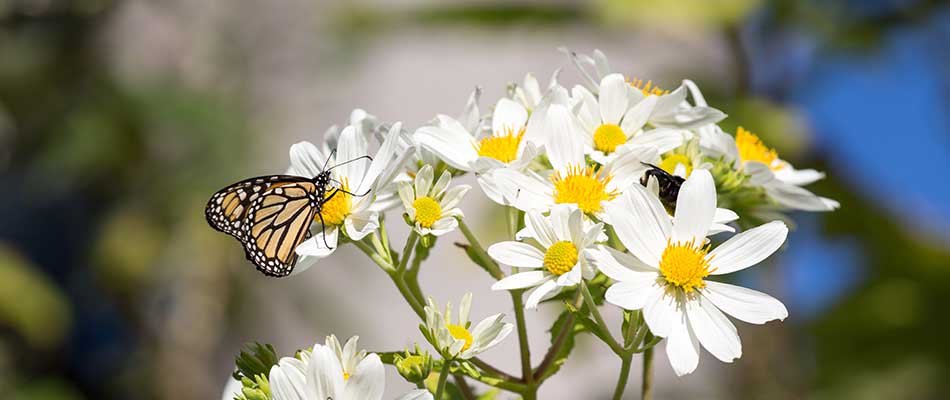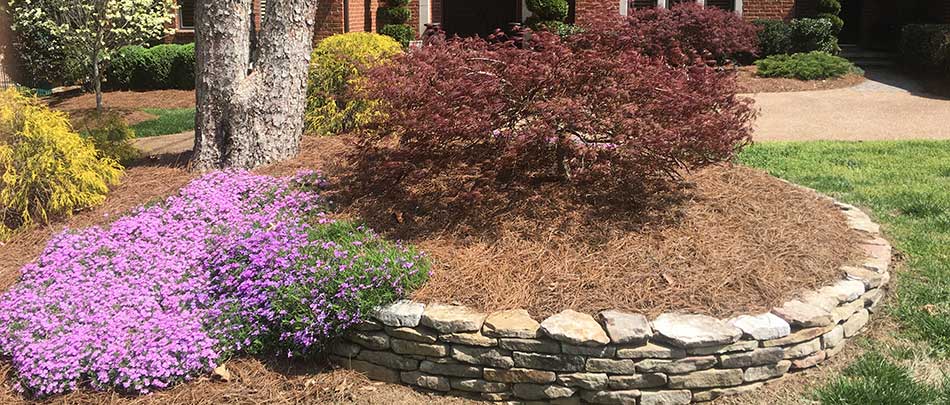Many are looking to find ways to reduce their carbon footprint as pollution continues to be an issue. Cities have recycling programs, homeowners create compost piles, and businesses use sustainable materials as much as possible.
One way homeowners can consider increasing their home’s eco-friendliness is through landscaping. Eco-friendly landscaping is growing in popularity and can create a beautiful, sustainable space in your yard.
If you are in Mt. Juliet, Hendersonville, Lebanon, or other nearby areas of Tennessee, here are some ways to go green with your landscaping.
Using Native Plants Increases Landscaping Sustainability
When non-native plants are used in landscaping, more resources are required to keep them alive because they are not proven to do well in that environment. This means more fertilizer, more fungicide, more herbicide—in other words, more chemicals going into the soil.
Native plants, on the other hand, are much more likely to survive the local climate because they have adapted to the environment. They will not require as much maintenance, time, or energy to keep them in good, healthy condition. Using these native plants means that your landscaping will be more sustainable.
Common native plants and trees in our area of Tennessee include:
- Dogwood
- Azalea
- Prairie rose
- Carolina rose
- Hydrangea
- Mountain laurel
- Viburnum
- Oak
- Maple
- And many more!
Consider Limiting the Usage of Chemicals in Landscape Beds
Many landscape beds require a balancing of soil when they are first created. Plants need a balance of nutrients such as nitrogen, potassium, and phosphorus to reach optimal health. When starting, it may be best for the plants to use a balanced fertilizer. However, once they are established and you want to use fewer chemical options to create eco-friendly landscaping, consider using organic fertilizer instead.
Another option is to have a compost pile somewhere in your yard. Composting limits waste going to landfills and is full of beneficial organic matter that can boost your plants and soil’s nutrients.
When it comes to weed control, and you don’t want to use herbicides, your other option is to have the weeds hand-pulled. These chemicals can harm the environment, mainly if too many are used.
Install a Pollinator or Butterfly Garden to Benefit Plants & Wildlife

Pollinators, also known as honeybees, bumblebees, butterflies, other insects, and even birds, help local ecosystems by taking pollen from plant to plant and helping to enable plant reproductive processes. Without that pollen, plants would be unable to produce fruit or seeds. As the pollinator population faces a decline due to overuse of insecticide and destruction of habitats, they need new, safe places to live.
Pollinator or butterfly gardens can provide that safe place while beautifying your outdoor space. Bees are attracted to bright, beautiful colors, which will brighten up your yard.
Are you looking to create new, eco-friendly landscaping at your property?
At Master’s Landscape Design, we can help you create a new, gorgeous, eco-friendly, sustainable landscape. If you live in or around Mt. Juliet, Hendersonville, or Lebanon, contact us at (615) 288-2052 to set up an initial consultation.

